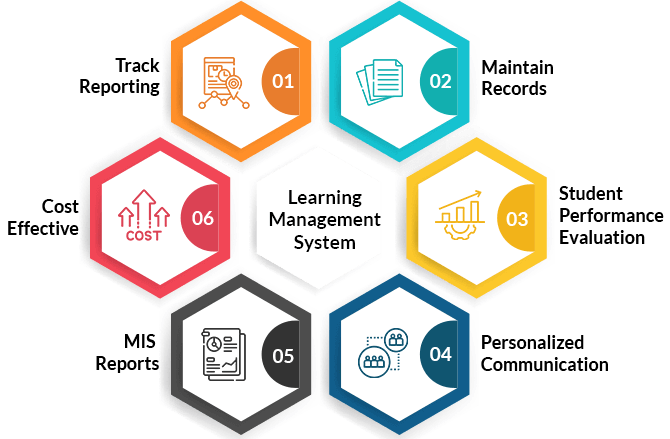LMS Singapore for Developing Exciting and Adaptable Online Programs
Wiki Article
The Ultimate Guide to Picking the Right Knowing Management System
Selecting an ideal Discovering Management System (LMS) is a pivotal decision that can dramatically impact educational effectiveness and total business objectives. The subtleties of these considerations elevate vital concerns that merit expedition, particularly as the landscape of electronic knowing proceeds to develop.Recognizing Understanding Management Solution
In the context of contemporary education and training, a Learning Management System (LMS) works as a vital device for supplying, tracking, and handling instructional web content. An LMS facilitates the organization of instructional resources, making it possible for institutions and companies to produce a central center for discovering products. This system sustains different discovering methods, consisting of online courses, combined understanding, and conventional class setups.LMS platforms are created to enhance the knowing experience by providing a structured environment where students can access web content at their ease. They often include features such as assessments, progression tracking, and coverage tools, which assist instructors check pupil performance and interaction. In addition, LMSs can be customized to fulfill the details demands of different learners and companies, allowing for customized academic experiences.
The combination of an LMS right into academic settings also advertises cooperation among learners and teachers, promoting a sense of area through conversation forums and team jobs. As organizations increasingly acknowledge the relevance of continual knowing and development, the duty of LMSs in helping with reliable training options remains to expand, positioning them as vital assets in the instructional landscape.
Trick Functions to Consider
When picking a Knowing Administration System (LMS), a number of vital functions warrant cautious factor to consider to ensure the platform lines up with instructional goals. User-friendliness is important; a simple user interface assists in ease of navigating for both students and managers.
Combination with existing tools is another considerable facet; the LMS needs to seamlessly attach with devices like CRM systems, video clip conferencing systems, and content repositories. canvas singapore. Mobile compatibility is progressively essential, as students frequently choose access to sources on-the-go
Moreover, personalization options enable establishments to customize the LMS to their details branding and pedagogical requirements. Consider the system's scalability, ensuring it can accommodate future development and modifications in customer demand. Prioritizing these crucial attributes will certainly assist in selecting an LMS that effectively enhances the finding out experience and meets institutional goals.
Prices Versions and Budgeting
Budgeting for a Learning Management System (LMS) calls for a thorough understanding of various pricing designs to guarantee a sustainable investment. Organizations has to review their particular needs and long-term goals while thinking about the financial ramifications wikipedia reference of each LMS alternative.
Along with the base prices, organizations need to also consider potential additional costs such as application, maintenance, and support solutions. It is critical to assess the complete cost of ownership over the LMS's lifecycle, including potential upgrades or additional features that might be required as the company expands. By very carefully evaluating these rates designs and associated costs, organizations can make enlightened decisions that line up with their monetary restraints and instructional goals.
Evaluating Customer Experience
Evaluating the performance of a Learning Monitoring System (LMS) goes past economic considerations; individual experience plays a crucial function in the total success of the system. A well-designed interface can substantially enhance engagement and retention, making it necessary to examine just how user-friendly the system is for both administrators and learners.When assessing individual experience, think about navigational convenience, availability functions, and the responsiveness of the platform throughout various tools. An LMS ought to provide a smooth experience, permitting customers to rapidly situate resources, track progress, and involve with content without unnecessary rubbing.
Furthermore, gather comments from actual individuals to assess contentment levels and identify possible discomfort factors. Focus groups or surveys can use important insights into exactly how learners communicate with the system and any type of challenges they deal with.
It's also critical to examine the level of customization available within the LMS. An adaptable system that enables organizations to customize the interface and features to their details requirements can considerably boost individual involvement. Eventually, a positive individual experience cultivates a learning environment that encourages participation and promotes knowledge retention, making it a key factor in the selection of an LMS.
Execution and Assistance Choices
Effectively rolling out a Learning Administration System (LMS) requires careful consideration of both application approaches and recurring assistance alternatives. A well-planned implementation method is important for lessening disruptions and making best use of user adoption. Organizations needs to review whether they will manage the execution in-house or team up with the LMS vendor. Internal groups may need training and resources to properly establish and tailor the system, while supplier partnerships can offer experience and simplify the procedure.Continuous assistance is equally vital to make sure the LMS continues to be effective and straightforward - canvas singapore. Organizations should analyze the kinds of assistance provided by the supplier, including technical assistance, user training, and routine updates. A durable support system can help solve problems quickly, thus enhancing user complete satisfaction and engagement
Additionally, think browse around this site about the schedule of resources such as individual handbooks, Frequently asked questions, and on the internet discussion forums. These can encourage users to troubleshoot their very own problems and cultivate a sense of neighborhood. Ultimately, the published here best implementation and support options will certainly not only help with a smoother shift to the LMS however additionally contribute to its lasting success within the company.
Conclusion
To conclude, picking an ideal Learning Monitoring System (LMS) requires careful factor to consider of numerous critical aspects, consisting of vital attributes, rates versions, user experience, and implementation strategies. An appropriate LMS not just improves academic outcomes but also cultivates partnership among customers and incorporates flawlessly with existing devices. canvas singapore. Ultimately, a detailed analysis of these components will certainly support companies in achieving their instructional goals and making certain a successful learning atmosphere for all stakeholders entailedReport this wiki page